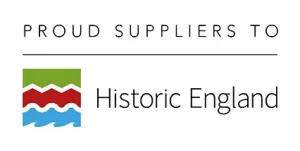In this blog, we aim to delve into the complexities of Nickel Sulphide inclusion, offering insights to minimise risks in rooflight design and dispelling common misconceptions. Let’s explore this phenomenon and strategies to address it effectively.
What is Nickel Sulphide Inclusion?
Nickel Sulphide inclusion refers to the unintended presence of Nickel Sulphide, an impurity, in the glass manufacturing process. While numerous inclusions exist, Nickel Sulphide stands out due to its potential to cause spontaneous glass breakage, sometimes long after installation.
Why Does Nickel Sulphide Inclusion Lead to Breakages
Breakages occur due to the expansion of Nickel Sulphide during the toughening process of glass. When glass is rapidly cooled after heating, the outer layers compress while the inner region, where Nickel Sulphide resides, remains in tension. Over time, the Nickel Sulphide undergoes volume changes, leading to fractures and eventual shattering.
Identifying Breakages Caused by Nickel Sulphide Inclusion
Implosions resulting from Nickel Sulphide inclusion exhibit distinctive patterns, typically centred around a singular point with pentagonal or octagonal-shaped fragments. However, detection can be challenging, especially when the glass is fragmented.
Does Nickel Sulphide Inclusion Impact All Types of Glass?
All glass types have the potential for Nickel Sulphide inclusion. However, the cooling process determines the likelihood of spontaneous breakage. Annealed glass undergoes controlled cooling, reducing the risk, while thermally toughened glass, cooled rapidly, is more susceptible.
Glass Recycling Isn’t Necessarily a Good Thing!
The UK Government’s push for a more environmentally friendly glazing industry is actually doing more harm than good when it comes to Nickle Sulphide. The reason being that when a unit containing Nickle Sulphide explodes, the glass fragments are reused and recycled to make new glass units. By adding the Nickle Sulphide from recycled glass back into the glass manufacturing process, you create a much greater chance of future units being affected.
Heat Soak Testing: A Potential Solution
Heat soak testing subjects glass to stress conditions, allowing Nickel Sulphide to revert to its low-temperature state. While not foolproof, it significantly reduces the risk of spontaneous breakage to approximately 1 in 400 tonnes of glass, or around 1 in 7,000 sealed units.
All Stella Rooflight units undergo a heat soaking process to ensure that Nickle Sulphide inclusion is kept to an absolute minimum. It is important to understand that this process does add to the cost of our glazing units and can lead to increased lead times. However, we believe it’s a process worth investing in to reduce any risks.
Warranty Coverage
Due to the unpredictable nature of Nickel Sulphide inclusion, and the impossibility of eliminating any chance of Nickle Sulphide inclusion in glass, manufacturer warranties will not cover it. Unfortunately, any damage deemed to be caused by Nickle Sulphide inclusion is not covered in Stella Rooflight’s warranty. This is under the guidelines of the Glass & Glazing Federation, who refer to it as a phenomenon, rather than a defect.
However, at Stella, we appreciate how frustrating this issue would be as a consumer, and while not legally obliged to do so, will do everything we can to work towards an amicable solution.
Future Solutions
Heat soak testing remains the best option, despite its limitations. Future technologies like ultrasound and laser imaging offer promise but require further development.
In conclusion
Nickel Sulphide inclusion poses a significant challenge in glass manufacturing in every related industry across the world. While no perfect solution exists, proactive measures like heat soak testing and technological advancements offer hope for mitigating risks and ensuring the integrity of glass products in various applications.
Here at Stella, we continue to work with our glazing partners to minimise the risks, while providing the most reliable, and highest quality product possible.
- 01794 745445
- info@stellarooflight.co.uk

